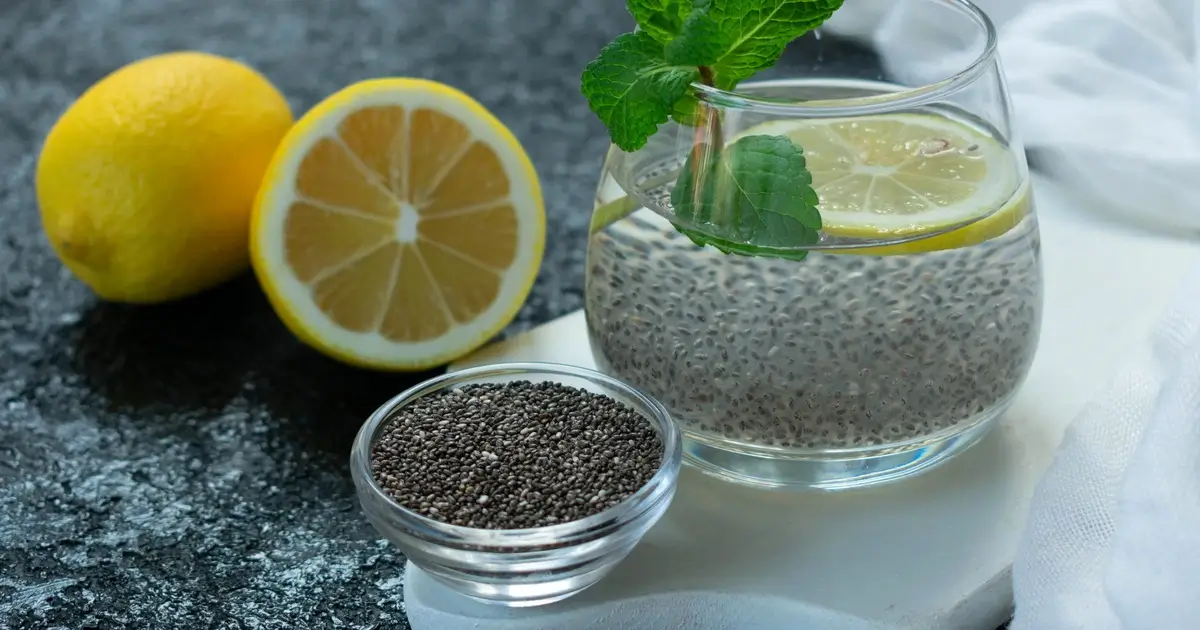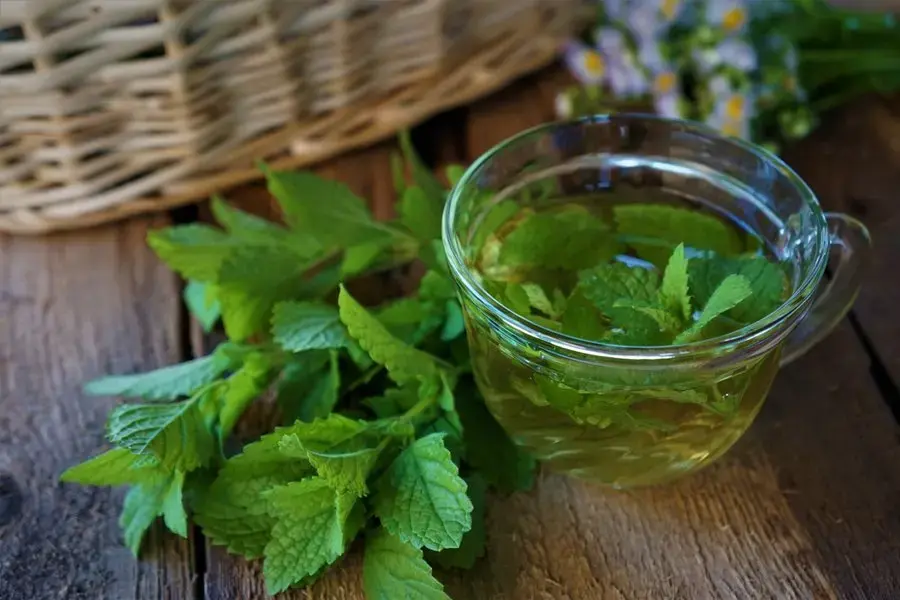Are you looking for a soothing, natural way to shed those extra pounds? Lemon balm tea might just be your new best friend! This fragrant herbal tea is not only a treat for your senses but also a potential ally in your weight loss journey. Packed with calming and digestive benefits, lemon balm tea is simple to prepare and a delight to sip. Let’s dive into the secrets of this humble herb and learn how to make the perfect cup.
What Is Lemon Balm?
Lemon balm (Melissa officinalis) is a member of the mint family, known for its mild lemony fragrance. This perennial herb has been cherished for centuries for its medicinal properties. Often grown in gardens, it is easy to cultivate and can thrive in various climates.
Lemon Balm Tea and Its Health Benefits
Lemon balm tea offers numerous health perks, including:
- Calming Effects: Acts as a natural stress reliever.
- Improved Digestion: Helps ease bloating and indigestion.
- Better Sleep: Encourages restful sleep patterns.
- Antioxidants: Fights free radicals, supporting overall wellness.
By incorporating this tea into your routine, you’re not just aiding weight loss but also improving your holistic health.
Why Lemon Balm Tea Can Aid in Weight Loss

How does lemon balm tea support weight loss? Here’s the science:
- Reduces Stress Eating: The calming properties help curb emotional eating.
- Enhances Digestion: A well-functioning digestive system supports better metabolism.
- Boosts Fat Burning: Some compounds in lemon balm may assist in fat metabolism.
Think of lemon balm tea as a gentle nudge for your body to operate at its best.
How to Make Lemon Balm Tea at Home
Making lemon balm tea is incredibly simple. Here’s a quick recipe:
Ingredients:
- 1 tablespoon fresh or dried lemon balm leaves
- 1 cup boiling water
- Optional: Honey or a slice of lemon
Steps to Make Lemon Balm Tea:
-
Prepare the Leaves:
- If using fresh leaves, rinse them gently and pat them dry.
- Crush the leaves slightly to release their essential oils.
-
Boil the Water:
- Bring water to a boil and let it cool slightly to avoid scalding the leaves (about 190°F or 88°C).
-
Steep the Tea:
- Place the lemon balm leaves in a cup or teapot.
- Pour the hot water over the leaves and cover.
-
Let It Infuse:
- Allow the tea to steep for 5–10 minutes, depending on how strong you like the flavor.
-
Strain and Serve:
- Remove the leaves using a strainer and pour the tea into your cup.
- Add a slice of lemon, a bit of honey, or ginger if desired.
Enjoy your warm cup of lemon balm tea any time of the day!
Best Time to Drink Lemon Balm Tea
When should you drink lemon balm tea for the best results?
- Morning: Kickstart your metabolism.
- Afternoon: Reduce midday cravings.
- Evening: Relax and curb late-night snacking.
Timing your tea intake can maximize its benefits for weight loss and relaxation.
Lemon Balm Tea Recipes for Weight Loss

Lemon Balm and Green Tea Blend
Combine 1 teaspoon of green tea with 1 teaspoon of dried lemon balm leaves for a metabolism-boosting drink.
Iced Lemon Balm Tea
Prepare the tea as usual and let it cool. Add ice cubes and a splash of lemon juice for a refreshing summer treat.
Combining Lemon Balm Tea with Other Herbs
Want to enhance the effects of your tea? Try these combinations:
- Lemon Balm and Mint: Perfect for digestion.
- Lemon Balm and Chamomile: A calming bedtime blend.
- Lemon Balm and Ginger: Adds a spicy kick and boosts fat burning.
Experiment with these blends to suit your taste and health goals.
Tips for Growing and Harvesting Lemon Balm
Lemon balm is easy to grow at home.
- Planting: Use well-drained soil and a sunny spot.
- Watering: Keep the soil moist but not waterlogged.
- Harvesting: Pick the leaves early in the day for maximum flavor.
Freshly harvested lemon balm leaves make the most aromatic tea!
Precautions and Possible Side Effects
While lemon balm tea is generally safe, keep these points in mind:
- Allergies: Check for potential reactions.
- Medical Conditions: Consult your doctor if you’re pregnant, breastfeeding, or on medication.
- Moderation: Avoid excessive consumption to prevent drowsiness.
As with anything, moderation and mindfulness are key.
Conclusion
Lemon balm tea is a simple, natural, and delicious way to support your weight loss journey. With its calming effects, digestive benefits, and easy preparation, it’s a versatile addition to your routine. Whether you’re sipping it hot or enjoying it iced, this herbal tea is sure to become a favorite.
FAQs For Lemon Balm Tea for Weight Loss
1. Can lemon balm tea help with bloating?
Yes, lemon balm tea aids digestion and can reduce bloating and gas.
2. Is lemon balm tea safe for children?
In small amounts, lemon balm tea is generally safe for children. Consult a doctor first.
3. How often should I drink lemon balm tea for weight loss?
You can drink 2–3 cups daily to support weight loss goals.
4. Can I use dried lemon balm leaves?
Absolutely! Dried leaves work well and are just as effective as fresh ones.
5. Does lemon balm tea have caffeine?
No, lemon balm tea is naturally caffeine-free, making it perfect for any time of day.
More Weight Loss Blog
- Best 10 Tips For Successful Weight Loss
- Best Weight Lifting Exercises to Lose Belly Fat in 2024
- Best 28-Day Walking Plan For Weight Loss
- Best Cupping for Belly Fat Loss: Does Cupping Therapy Work?
- 6 Best Fastest Ways to Lose Weight While Breastfeeding
- Does kayaking burn belly fat? – A Comprehensive Guide
- How to Lose Weight in 7 Days – Simple & Effective Tips
About Author
Dr. Robert Martin is a famous weight loss expert and author of the best-selling book “Transform Your Belly Fat Loss and The Ultimate Guide to Sustainable Weight Loss. With over 15 years of experience in the industry, He specializes in weight loss, diet and meal plan tips. Dr. Robert Martin is currently the author of Lose My Belly through which he has helping thousands of patients achieve their weight loss goals and evidence-based strategies.
















Leave a Reply